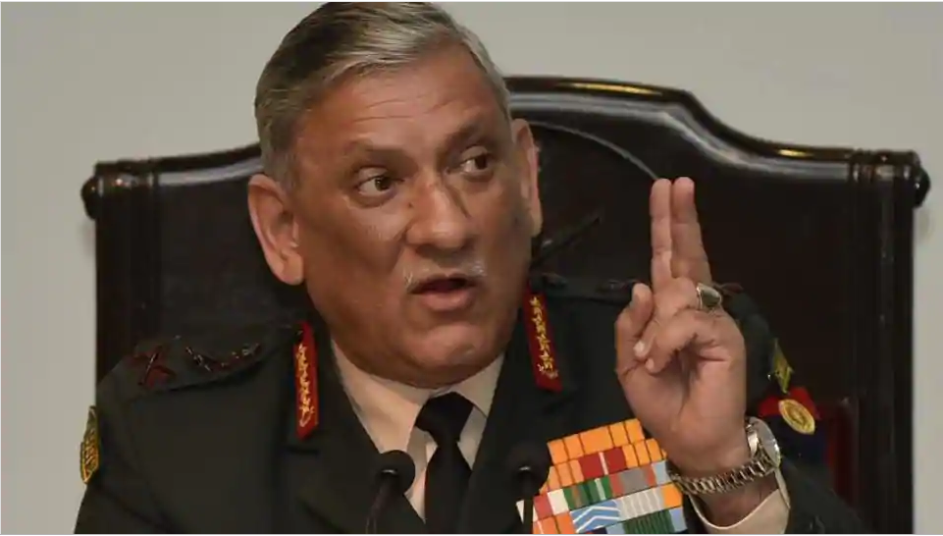
New Delhi (Pahichan) January 11 – Four months after the Supreme Court read down section 377 of the Indian Penal Code (IPC), General Bipin Rawat on Thursday stressed that there was no room for consenting adult same-sex relationships in the 1.2 million-strong force in the Indian Army.
“LGBT issues are not acceptable in the army,” army chief Rawat said during his customary press briefing ahead of Army Day on January 15.
The section that criminalised relationships of consenting Lesbian, Gay, Bisexual and Transgender adults, was read down by a Constitution Bench of the apex court in September last year.
The Supreme Court also ruled in September that IPC section 497, which criminalised sexual relationship with a woman without her husband’s consent, was archaic and deprived women of agency.
When asked about the army’s stand on the decriminalisation of consenting adult relationships pertaining to those outside of marriage, he responded: “We are conservative. We have neither modernised nor westernised. LGBT issues are not acceptable in the army
“…and we will not allow this thing [adultery] to perpetrate in the army.”
The army chief further said: “A soldier on the border cannot be worried about his family. He has to be reasonably assured that his family is being cared for. Same thing about LGBT issues, it is not acceptable in the army. We will still deal with them under various sections of the Army Act.”
Rawat said the force wasn’t above the country’s law, but members of the Indian Army are not entitled to the same rights and privileges guaranteed to other citizens under the Constitution.
“I do not have the power to form a union that you have. There are some issues where we are different… We are not above the Supreme Court. The court has said something and we will have to see how we take a call,” Rawat said.
Section 63 of the Army Act,1950, pertains to actions that are “prejudicial to good order and military discipline”, while section 46 pertains to certain forms of disgraceful conduct, including one which is of “a cruel, indecent or unnatural kind”, and stipulates imprisonment of up to seven years upon court martial.
It may be recalled that section 377 also penalised “unnatural offences” of a carnal nature.
Rawat’s comments come at a time when a private member’s bill introduced in Parliament seeks to amend the Army Act, the Air Force Act (1950) and the Navy Act (1957).
Jagdambika Pal, a member of Parliament with the Bharatiya Janta Party (BJP), introduced a bill in the recently concluded winter session, which sought to give equal rights and opportunities to the LGBT community to serve in the armed forces.
The bill titled The Armed Forces Law (Amendment) Bill 2018 sought to insert the line, “Nothing in this section shall apply to consensual sexual acts committed between adults, whether of the same gender or of different genders” under specific sections of all three acts, which pertain to conduct.
“The Supreme Court has decriminalised adult consensual homosexual acts in India. All laws now have to be interpreted, in light of the Supreme Court judgment, including the Army, Navy and Air Force Acts. It is true that uniformed personnel do not enjoy the same fundamental rights as civilians, but that restriction is more applicable in cases of freedom of speech or association. Even the government servants have certain restrictions on their freedom of speech and expression. This does not mean that the uniformed personnel can be denuded of their basic fundamental rights of equality, dignity, and identity in the armed forces,” said Amritananda Chakravorty, a lawyer of one of the petitioners against Section 377.
Internationally, the fight to recognise the rights of LGBT persons to serve in the armed forces has had a long history. The United States military, which followed a “Don’t Ask Don’t Tell” policy rolled out spousal and family benefits for same-sex marriages after a 2011 law came into force that prevented the discharge of personnel who openly identified as being homosexual. The current Donald Trump administration, however, has sought to restrict transgender persons from serving in the military.
The United Kingdom lifted a ban against LGBT persons serving in the armed forces in 2000. The UK’s department of defence issued an apology in 2007 to all the personnel who had faced persecution and discrimination.
The Dutch military allowed LGBT individuals to serve in 1974. Other countries with inclusive armed forces include Sweden, New Zealand, and Israel.
Source : Hindustan Times
Copyright © All right reserved to pahichan.com Site By: Sobij.